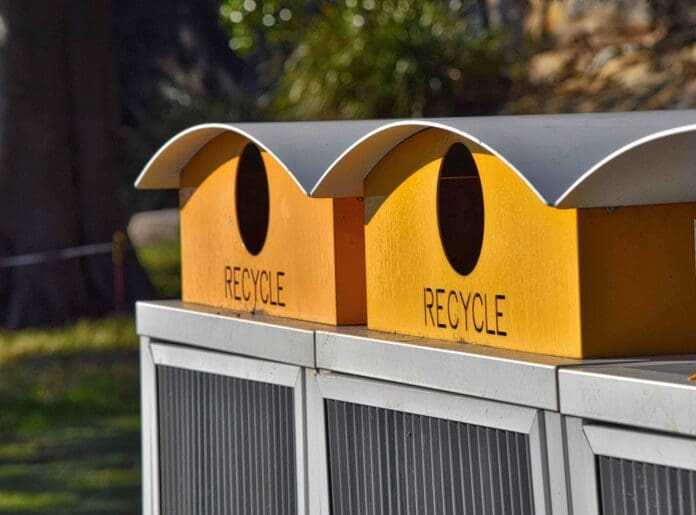By Natalie Lavenstein
On a typical Monday evening, I find myself facing the familiar chore of emptying my kitchen trash bin, knowing that the garbage pickup is just around the corner. As I tip the overflowing contents into my larger outdoor bin, I don’t often give much thought to where it all ends up next.
The dedicated haulers whisk away my refuse, embarking on a seemingly routine trip to yet another bin—the Moccasin Mike Landfill. But, much like the trash can in my kitchen, this expansive landfill has its limits too.
In the not-so-distant future, 2026 to be exact, the curtains will close on the Moccasin Mike Landfill, signaling a pivotal moment in waste management for Northeast Minnesota. The time has come to reimagine our approach to waste. In front of us is an opportunity to transform recycling and composting in our communities, which will redefine our collective footprint on our environment.
Everyday products and how we choose to dispose of them wield a profound influence on the environment, shaping the world around us and, in turn, impacting our lives. According to the Environmental Protection Agency, “Municipal solid waste (MSW) landfills are the third-largest source of human-related methane emissions in the United States, accounting for approximately 14.3 percent of these emissions in 2021.” To make more sense of those numbers, “methane emissions from MSW landfills in 2021 were approximately equivalent to the greenhouse gas (GHG) emissions from nearly 23.1 million gasoline-powered passenger vehicles driven for one year or the CO2 emissions from nearly 13.1 million homes’ energy use for one year.” Instead of simply opening a Moccasin Mike 2.0 and further contributing to methane and CO2 emissions, toxic leachate, poor water quality and more, we can choose a better route. A route that will be more cost effective, scalable, and sustainable in the long run.
Northeast communities are responding to this opportunity: Regional solid waste officers worked collaboratively during a 24-month period to produce the Northeast Regional Solid Waste Management Plan. Within this plan are ambitious objectives for Lake and Cook counties, emphasizing waste reduction and a strategic elevation of recycling and composting initiatives.
Achieving these goals goes beyond merely reducing waste; it holds the potential to yield extensive benefits for the community, encompassing environmental, economic, and social advancements. This initiative aims not only for waste reduction but to foster resilience in our community’s well-being.
To support that initiative, Lake County in partnership with Cook County and the Grand Portage Band of Lake Superior Chippewa is undertaking a waste reduction project, Northeast Communities Recycling & Composting Collaborative, funded by an MPCA grant and with assistance from the Northeast Regional Sustainable Development Partnership (RSDP). There are three components to this project: The first is a pilot project that will demonstrate a closed-loop composting system with local farmers outside of Grand Marais. Essentially, this will pilot a system where compost is produced and used in the same community that produced the food scraps. The second pilot project is with Crystal Bay Township (Finland) to establish a permanent recycling trailer pickup station to provide greater access for their residents. The third component is a feasibility study throughout Lake, Cook, and Grand Portage.
This study, encompassing surveys and community engagement, aims to develop community-backed plans for recycling and composting. Launching in early February, a household survey will be available across these communities to gather residents’ perspectives and practices regarding recycling and composting.
In February, various community meetings will take place at local venues, introducing the project, presenting early survey findings, and engaging in group discussions (see advertisement on page 3 for dates and times). Meeting participants will share thoughts, ideas, and imaginations as we explore alternative solutions, learn from successful practices, and envision a sustainable path forward. After repeating this process throughout Northeast communities, an additional meeting will be held, sometime in April to share insights, community-supported options, and outline implementation steps. Lake County and Northeast RSDP will provide support for community implementation of these plans during the summer of 2024 and beyond.
You are invited to actively participate in the surveys and community engagement meetings. Your insights are crucial in shaping the future plans for composting and recycling in our region. By participating, you contribute to a vision that genuinely reflects the needs and aspirations of your community.




